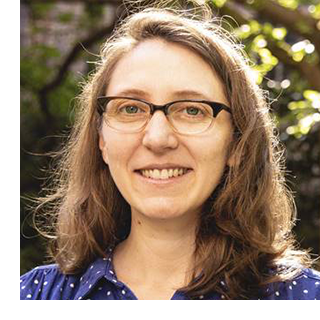Four RGMA-Connected Scientists Receive Honors
AGU Honors
The American Geophysical Union (AGU) honored two research scientists doing work for RGMA projects during its 2020 Award Showcase, held during the AGU Fall Meeting, which took place virtually December 1 to 17, 2020.

William D. Collins of Lawrence Berkeley National Laboratory was recognized as an AGU Class of 2020 Fellow.
Fellowships are bestowed on AGU members who have attained scientific eminence in the Earth and space sciences for achieving a breakthrough, discovery, or innovation in their field. Collins was recognized for his “pioneering contributions to the fundamental understanding of atmospheric radiation, radiative forcing, and the role of radiation in climate.”
As the Director of the Climate and Ecosystem Sciences Division for the Earth and Environmental Sciences Area at the Lawrence Berkeley National Laboratory and Professor at the University of California, Berkeley, Collins is a distinguished scientist specializing in climate modeling and climate change science. Previously, he served as Chief Scientist for the Accelerated Climate Modeling for Energy (now E3SM) project, sponsored by the Earth and Environmental Systems Modeling program within the U.S. Department of Energy’s (DOE) Office of Biological and Environmental Research.
Collins is recognized internationally for his contributions to quantifying and modeling interactions among sunlight, heat, the coupled models of the climate system, and global environmental change. As an AGU Fellow, he will continue the AGU College of Fellows mission to foster excellence, integrity, and interdisciplinary collaboration in the Earth and space sciences, and provide expert and strategic advice to AGU on global scientific issues.
Collins is principal investigator (PI) for Calibrated and Systematic Characterization, Attribution, and Detection of Extremes (CASCADE) and is a Laboratory Principal Investigator for CERC for Water-Energy Solutions and Technologies (CERC WET).

L. Ruby Leung of Pacific Northwest National Laboratory (PNNL) presented the Jacob Bjerknes Lecture, an honor awarded annually to a scientist who has made a major impact in advancing the basic understanding of the atmosphere and Earth’s climate. Leung’s presentation, “A Quest to Understand and Model Regional Precipitation and Their Future Changes,” discussed the important connection between the atmospheric flow of energy and water and how this connection can be used to understand regional precipitation changes such as the observed and projected seasonal delay of tropical precipitation with warming. Leung also emphasized the important role of mesoscale convective systems, the largest form of deep convective storms, in the atmospheric energy flow, suggesting their significance in shaping regional precipitation patterns. While deficiencies of the current generation earth system models in simulating mesoscale convective systems have limited our confidence in their projections of water cycle changes, new generation global cloud resolving models designed for exascale computers offer a promising tool for advancing modeling of regional precipitation critical for planning of resources and infrastructures.
At PNNL, Leung is a Battelle Fellow and the Chief Scientist of DOE’s Energy Exascale Earth System Model (E3SM). A distinguished atmospheric scientist, Leung researches diverse subject areas broadly related to the modeling and analysis of climate and the hydrological cycle, including land-atmosphere interactions, orographic processes, monsoon climate, extreme events, land surface processes, aerosol-cloud interactions, and human-earth interactions.
Leung is PI of RGMA’s Water Cycle and Climate Extremes Modeling (WACCEM) Scientific Focus Area and contributes to numerous projects across EESM.
AMS Honors
At the recent American Meteorological Society (AMS) Annual Meeting (January 10 to 15, 2021), two scientists who contribute to RGMA projects received awards.

Sarah T. Gille of the Scripps Institution of Oceanography, University of California, San Diego (UCSD), was awarded the American Meteorological Society’s Sverdrup Gold Medal for her work on ocean circulation and air-sea interaction in the Southern Ocean. The medal, presented for outstanding contributions to scientific discovery in the areas of ocean biogeochemistry, recognizes Gille’s research efforts in discovering the impact that ocean circulation and air-sea interactions have on the cryosphere, ocean ecosystems, and earth’s climate.
Gille’s research seeks to answer questions related to how the ocean interacts with the atmosphere, and she utilizes remote sensing and autonomous float observations to measure air-sea fluxes specifically within the Southern Ocean surrounding Antarctica.
Gille, a professor of physical oceanography in the Oceans and Atmospheres Section at UCSD, is a co-PI for the Influence of Antarctic and Greenland Continental Shelf Circulation on High-Latitude Oceans in E3SM project and previously served as co-PI on the Ocean and Sea Ice and their Interactions around Greenland and the West Antarctic Peninsula in Forced Fine-Resolution Global Simulations project.

Abigail L.S. Swann of the University of Washington was named the Walter Orr Roberts Lecturer for her advancements in discovering the processes by which terrestrial ecosystems influence climate, and for exhibiting outstanding communication between the atmospheric and biological sciences. The lectureship is awarded to mid-career scientists who have made significant contributions to the understanding of atmospheric processes through information interchange, either between science disciplines or between atmospheric scientists and scientists of other disciplines.
Swann’s keynote lecture, “Quantifying the Role that Ecosystems Play in Earth’s Climate,” highlighted the role that plants play in modifying the climate system in response to external forcing. Her findings suggest that plant distribution and functioning directly modify both regional and global scale climate, and that ecosystems and climate must be considered a coupled system when measuring the response of the climate system to change.
Swann’s research is centered around the study of the physical climate system and the underlying biological processes that govern ecosystems. She seeks to understand how plants influence the climate across a range of spatial and temporal scales. Swann serves as an associate professor jointly appointed in Atmospheric Sciences and Biology at the University of Washington.
She is a PI for the Evaluating the influence of plants on hydrologic cycling: Quantifying and validating the role of plant processes and stomatal conductance project.
